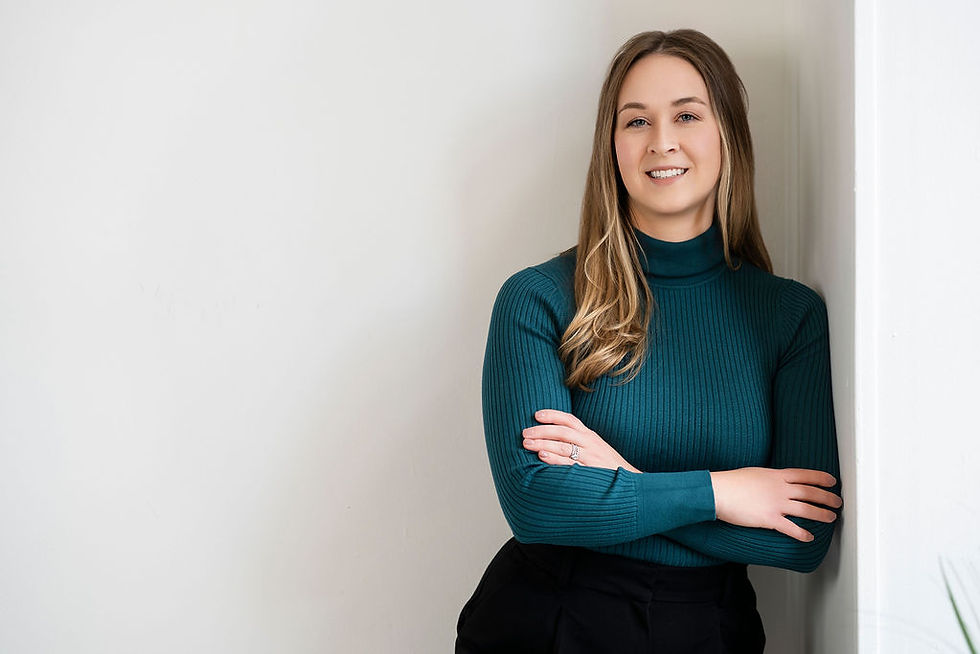Centers for Medicare Changes Are Undermining Care for Seniors—and the Future of Speech Language Pathology
- Sophia Apgar
- Jun 24, 2025
- 3 min read

My name is Sophia Apgar, and I am the owner of Insight Speech and Swallowing Therapy, a private practice serving adults with speech, language, cognitive, and swallowing disorders in Cherry Hill, New Jersey. My clients are primarily seniors aged 65 and older or disabled adults—individuals who rely on Medicare for access to skilled, medically necessary therapy. Over the past two years, my practice has grown rapidly, and in response to increased demand, I recently hired two talented Clinical Fellows (CFs) to support our expanding caseload.
Unfortunately, this exciting growth has coincided with a deeply disruptive policy change from the Centers for Medicare & Medicaid Services (CMS). A recent update to the Medicare Benefit Policy Manual (Section 230.3.B) redefines a “qualified” speech-language pathologist as someone who holds full licensure—effectively excluding Clinical Fellows, even though they are provisionally licensed, supervised professionals who have completed all academic and clinical training required for independent practice.
This change has severe implications for my practice, my staff, and most importantly, the seniors in my South Jersey community.
My Story
My journey to a clinical fellowship was rocky. I graduated with my masters degree in January 2020 with a dream to work in a medical setting. After a few short weeks, it quickly became clear that wouldn't be happening as the world was turned upside down due to covid. In the summer of 2020 I secured a job with a contracting company in skilled nursing. After 3 weeks, I got notice the position was no longer available. I was crushed.

The same company got back to me a week later for a position in a different state that I was thankful to be able to take and complete my clinical fellowship year. This position in skilled nursing, working with Medicare A and B patients, no longer exists under the current CMS changes. I was the only SLP in the building with limited personal supervision. My building of more than 120 individuals would not have received services. Now, in my own practice, I am seeing clients lose access to quality and timely care.
Loss of Access and Quality Care
Our Clinical Fellows were hired with the expectation that, like those before them, they could treat Medicare beneficiaries under supervision. They are more than capable. However, the updated Medicare rule now prohibits them from providing direct care to this population. As a result, our fully licensed clinicians have had to absorb the entire Medicare caseload—delaying care for new Medicare patients. This is not about convenience; it’s about access to care.
Loss of Clinical Fellow Development and Independence

CFs are not students—they are professional clinicians who have earned their graduate
degrees, passed rigorous academic and clinical requirements, and obtained provisional state licenses. Their final fellowship year is designed to hone their independence under structured mentorship. Barring them from treating Medicare patients denies them the opportunity to work with a significant portion of the adult population and limits the diversity of clinical experience they need to thrive. This will also lead to "certified" speech-language pathologists who essentially gain no mentored experience in adult settings.
Loss of Graduate Student Training
The ripple effect doesn’t stop there. With licensed clinicians now overwhelmed, we’ve had to pause our graduate student externship program, which provided vital hands-on learning for aspiring speech-language pathologists. Our pipeline for training and mentoring future providers is drying up at a time when access and expertise are more critical than ever. If you are a school who has worked with us or asked to work with us, we are so sad to pause our graduate placement opportunities and encourage you to advocate for changes to CMS's policy.
Let Us Care for Our Communities
Medicare policy must strike a balance between protecting patients and enabling access to qualified care. Clinical Fellows are supervised. They are educated. They are competent. And with oversight from fully licensed SLPs, they have long delivered high-quality, compassionate care to Medicare beneficiaries.
Let’s not make seniors wait longer, travel farther, or forgo care because of a technicality that ignores how speech-language pathology has always safely trained and supervised new clinicians. If you are an SLP, know an SLP, love an SLP, or are being treated by an SLP, I encourage you to write to your congress people, the Centers for Medicare and Medicaid, and Health and Human Services.
Resources:




Comments